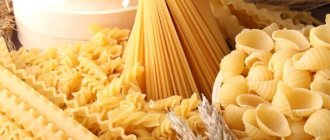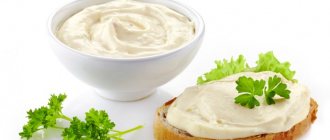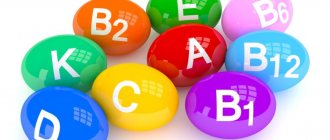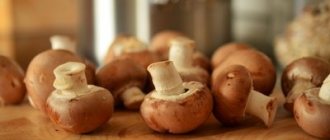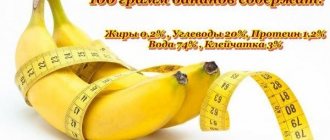Is it possible to eat cheese on a diet?
The product is very rich in proteins and calcium. But this is a high-calorie food, so not everyone can benefit from eating cheese while on a diet. If you make it at home or choose low-fat varieties, you will not gain weight and will not go hungry. You need to be careful with salty foods - salt retains water in the body, reducing the effectiveness of the diet. Some varieties contain a lot of cholesterol, so you need to reduce your consumption of this product. But there are special diets that will help you get rid of unnecessary volume and weight.
Cheese for weight loss
Is it possible to eat cheese on a diet? Everyone has probably heard about the importance of protein in a diet. This is no coincidence, because food rich in protein quickly satisfies hunger and increases the body’s endurance, and most importantly, it reduces cravings for sweets and does not turn into fats in the body. A much-needed building component is found in cheese. Therefore, when asked whether it is possible to eat cheese on a diet, we answer that it is possible, however, with some exceptions:
- To minimize the amount of fat in the diet, you need to switch to low-calorie cheeses (up to 300 Kcal and with a fat content of no more than 20%). Nutritionists recommend light varieties of the following varieties: feta cheese, Adyghe cheese, mozzarella, brie, ricotta, tofu and feta.
- If the diet is based on counting calories, then hard and semi-hard cheeses are quite acceptable, but their consumption should be limited (eat 1-2 medium slices per day, and ideally every other day).
- Seasoned and filled varieties should be avoided.
- You need to carefully study the composition on the packaging: if there are impurities of vegetable fats, in particular palm oil, then it is better to refuse the purchase. It is also necessary to pay attention to production times and take into account that only high-quality and fresh products can benefit the body.
What kind of cheese can you eat while losing weight?
When thinking about your diet, it is best to choose cheese for weight loss with a low percentage of fat, carbohydrates and low calorie content. This includes Ricotta, it contains only 174 kcal, this curd cheese is irreplaceable on a diet. It is worth paying attention to Amber, Oltermanni, Mozzarella, Camembert with mold, feta cheese, Adygei, Tofu. Feta is healthy and tasty; it is higher in calories - 290 kcal per 100 g, but it contains almost no carbohydrates, which provoke rapid weight gain. You can eat these varieties in the morning, afternoon and evening without fear of gaining weight.
Brynza for weight loss
There is little fat in feta cheese, but a lot of protein, as well as easily digestible calcium, vitamins C, E, B 1, B 2 and useful minerals. The average calorie content of feta cheese is 260 kcal, it is a dietary product, it helps digestion, and those who are on a diet can eat it without fear. Cheese cheese retains its properties perfectly for 2-3 weeks, if it is properly preserved in natural brine.
Adyghe cheese for weight loss
Adyghe contains little fat, but is rich in calcium, phosphorus, and fat-soluble vitamins. The calorie content of Adyghe cheese is only 240 calories. The enzymes contained in it improve the digestion process, normalize the intestinal microflora and the functioning of the nervous system. It is believed that drinking Adyghe helps cope with anxiety, improves sleep and mood. This dietary product is often included in menus for overweight people with a tendency to obesity.
Tofu cheese for weight loss
Eating Tofu promotes weight loss. This fermented milk product is made from soy milk and has unique beneficial properties. It contains a large amount of vegetable protein, amino acids, iron, calcium, which the body requires. Does not contain cholesterol, reduces its level in the blood. The calorie content of tofu soy cheese is low - on average 100 kcal, therefore, by consuming it, you can have fun and lose excess weight.
There is a special diet based on Tofu, which is easy to follow. Tofu is filling, but easily digested by the body and acts as a mild laxative. In three you can lose several kilograms:
- Breakfast: Tofu and vegetable salad without oil and spices.
- Lunch: any Tofu dish, green tea.
- Dinner: vegetable salad and Tofu.
- Repeat the diet after four months.
Ricotta for weight loss
Italian Ricotta is produced from whey with a low amount of fat, so it has a lot of albumin proteins, and the fat content is one of the lowest. Want to know how many calories are in ricotta? In 100 grams there is no more than 174, but this does not prevent it from being nutritious and tasty. This dietary product has a calming effect on the liver and strengthens the immune system. So you can not be afraid to prepare delicious desserts, snacks and sandwiches with Ricotta, but this does not apply to the saltier types: smoked and aged, they are salty.
Mozzarella for weight loss
Mozzarella is a source of proteins, vitamins, and microelements that a person needs; it does not cause digestive problems and is useful at any age. The calorie content of 100 g of mozzarella can be 350 kcal, but low-fat varieties have different indicators. For example, the energy value of low-fat mozzarella is 160 calories. Therefore, it is worth adding it to various dishes without fear of gaining weight.
- Black Prince Cake: Recipes
- What kind of girls do guys like?
- Symptoms of arterial bleeding
Cheese classification
To understand whether all types of cheese can be eaten on a diet, it is necessary to consider their basic classification. Based on density and method of preparation, cheeses are divided into several types.
Soft ones have a creamy/curd consistency and are produced without additional processing (ricotta, feta, mozzarella, camembert, brie, etc.). Semi-hard cheeses have a dense, creamy consistency. They also do not need additional processing (Edam, Gouda, Russian, Dutch, Kostroma, Roquefort, Dor Blue, etc.). Hard cheeses have a dense consistency and differ from semi-hard cheeses in the method of pressing and ripening period (Emmental, Parmesan, Maasdam, etc.).
Smoked cheeses are related to hard cheeses in terms of density, but they differ significantly from them in the method of preparation: smoking gives such cheeses a special taste. Processed types contain additional vegetable fats, so they cannot be called full-fledged cheeses. Like soft ones, they have a creamy consistency, but during cooking they undergo additional processing (melting).
Cheeses are made from the milk of different animals: varieties made from cows have the lowest fat content, and those from sheep have the highest fat content. Is it possible to eat cheese on a diet?
Is it possible to have processed cheese on a diet?
The melted product is useful. It contains vitamins and minerals: zinc, copper, iron, sulfur, phosphorus, potassium, sodium, magnesium, saturated fatty acids. The average calorie content is 226 kcal. You can eat processed product when losing weight, but only as part of a special diet, for example, the “5 Cheesecake Diet”: only processed product and dry white wine are used. You can reduce weight by 5 kg in 5 days, but there are contraindications for people who have problems with the gastrointestinal tract, liver disease, or are dependent on alcohol.
Calorie content of cheese
Anyone who is wondering whether it is possible to eat cheese while on a diet should imagine the approximate energy value of their favorite varieties. The average calorie content of cheese is approximately 315 Kcal depending on the type, and a small slice contains about 65-70 Kcal. At the same time, most curd cheeses have a lower energy value than hard cheeses. For example, 100 grams of ricotta contains 174 Kcal, and Russian ricotta contains 364 Kcal. Parmesan is considered one of the highest calorie varieties - 392 Kcal.
| Name | Kcal (per 100 grams) |
| Adyghe | 264 Kcal |
| Bree | 291 Kcal |
| Cow's milk cheese | 260 Kcal |
| Sheep's milk cheese | 298 Kcal |
| Gouda | 356 Kcal |
| Dutch | 356 Kcal |
| Dor blue | 354 Kcal |
| Camembert | 324 Kcal |
| Sausage | 271 Kcal |
| Kostroma | 343 Kcal |
| Lambert | 377 Kcal |
| Lithuanian | 250 Kcal |
| Maasdam | 350 Kcal |
| Moscow | 356 Kcal |
| Mozzarella | 240 Kcal |
| Parmesan | 392 Kcal |
| Fused | 235 Kcal |
| Poshekhonsky | 344 Kcal |
| Ricotta | 174 Kcal |
| Russian | 364 Kcal |
| Roquefort | 335 Kcal |
| Soviet | 385 Kcal |
| Suluguni | 290 Kcal |
| Tilsiter | 334 Kcal |
| Tofu | 73 Kcal |
| Feta | 290 Kcal |
| Cheddar | 380 Kcal |
| Chechil | 313 Kcal |
| Chechil brine smoked | 320 Kcal |
| Swiss | 380 Kcal |
| Edam | 330 Kcal |
| Emmental | 380 Kcal |
| Estonian | 350 Kcal |
| Yaroslavsky | 350 Kcal |
Cheese diet for weight loss
A cheese diet will help you quickly lose weight. In a few days you can lose about three kilograms without harming your health. The main advantage of this protein diet is a very small amount of carbohydrates. The body begins to consume internal carbohydrate reserves, which reduces adipose tissue. You need to eat unsalted and hard types every day. Fat content should not exceed 12%. It is imperative to take multivitamins, since fruits and vegetables are excluded from the diet.
For 3 days
A special cheese diet for 3 days will allow you to lose 3 kilograms. You don’t have to be afraid to eat this product and cottage cheese, but be sure to drink more liquid. This is an effective method for rapid weight loss. Here is an example of a menu for three days:
1 day:
- Breakfast: unsweetened tea, coffee, cheese.
- Second breakfast: boiled egg, tea.
- Lunch: 100 g cheese, 200 g meat (lean).
- Afternoon snack: 250 g of fresh cottage cheese.
- Dinner: low-fat kefir or yogurt.
Day 2:
- Breakfast: 1 bell pepper, cheese, herbal tea.
- Second breakfast: tea, boiled egg.
- Lunch: boiled meat with a slice of cheese, mineral water.
- Afternoon snack: 2 fresh cucumbers with cheese.
- Dinner: cheese, yogurt or kefir.
Day 3:
- Breakfast: 2 fresh tomatoes, low-fat cottage cheese (150 g).
- Second breakfast: 100 g of asparagus, low-fat cheese, mineral water. Lunch: boiled chicken breast, cheese (100 g), tea.
- Dinner: green apple, cheese slice.
For 10 days
The duration of the proposed diet is 10 days, and 10 kg of weight can be lost during this time. A cheese diet for 10 days suggests that you can eat 50-80 grams of this fermented milk product per day. What kind of cheese can you eat on a diet? Only solid and no more than 100 g per day. It is useful to combine different types of it, eating them with vegetables. Drink no more than a liter per day. After five days, take a break for a couple of days, but do not eat cereals, bread products, flour and sweet foods. Vegetables and meat optional. Then repeat the diet. A menu of simple components is offered:
Day 1:
- Breakfast: 20 g of cheese, a glass of milk, cucumber (fresh).
- Lunch: 4 tomatoes, cilantro (2 sprigs), 20 g cheese.
- Afternoon snack: cucumber, 20 g cheese.
- Dinner: 100 gr. boiled meat (turkey, chicken).
Day 2:
- Breakfast: 2 boiled potatoes with salt, 30 g of cheese.
- Lunch: 5 radishes, 100 g cabbage.
- Afternoon snack: 20 gr. cheese, a glass of milk.
- Dinner: 4 boiled carrots, 20 g cheese.
Day 3:
- Breakfast: 150 gr. boiled peas with salt, a cup of unsweetened strong black tea.
- Lunch: 200 g boiled asparagus, 30 g fermented milk product.
- Afternoon snack: 2 cucumbers, 20 g cheese
- Dinner: 100 g boiled beans with salt, 15 g cheese.
Day 4:
- Breakfast: 20 g of cheese, a glass of milk, 2 bell peppers.
- Lunch: 100 g boiled broccoli (salted).
- Afternoon snack: 6 lettuce leaves, 40 g cheese.
- Dinner: 100 g of boiled red meat.
Day 5:
- Breakfast: a glass of kefir, 2 tomatoes, 20 g of cheese,
- Lunch: 200 g eggplant stewed with garlic, 20 g cheese.
- Afternoon snack: 2 cucumbers, 40 g cheese.
- Dinner: 100 g of boiled white chicken meat, 50 g of celery root.
Sausage cheese information
Is it possible to eat sausage cheese on a diet? Despite the fact that the calorie content of sausage cheese is slightly lower than that of its hard counterparts, this product contains many different additives, so doctors recommend avoiding it during a diet. Minimum portions of high-quality sausage cheese will not harm your figure, but since it is now extremely difficult to find a naturally produced product, the question arises about its usefulness in principle, not to mention dietary nutrition.
Summarize
Let's draw key conclusions on the question of whether you can eat cheese on a diet? This product is acceptable for weight loss; moreover, there are special cheese diets.
When choosing cheese, you need to consider two characteristics: fat content and calorie content. Fat content should not exceed 20%, calorie content should be in the range of 200-250 Kcal. If the indicators are higher, then consumption should be minimal - 1-2 pieces per day, or better every other day. When dieting, it is recommended to eat light varieties of feta cheese, ricotta, tofu, mozzarella, feta, brie and Adyghe cheese. The taste characteristics of these cheeses differ, so everyone can choose the most suitable option for themselves. And, of course, don't forget about physical activity. Moderate nutrition and exercise are the key to successful results.
Russian cheese
One of the most popular and sought-after semi-hard cheese varieties in our country is Russian cheese. It is very healthy, and its moderate consumption has a beneficial effect on the entire body. Is it possible to have Russian cheese on a diet?
The relatively high fat content and calorie content do not allow Russian cheese to be classified as a dietary product, and therefore anyone who wants to lose weight should not include it in the daily menu. But you shouldn’t give it up altogether: if you eat 1-2 slices of Russian cheese every other day, this will only help you lose weight. True, this should be done during the period of active natural metabolism, i.e. for breakfast or afternoon snack.
